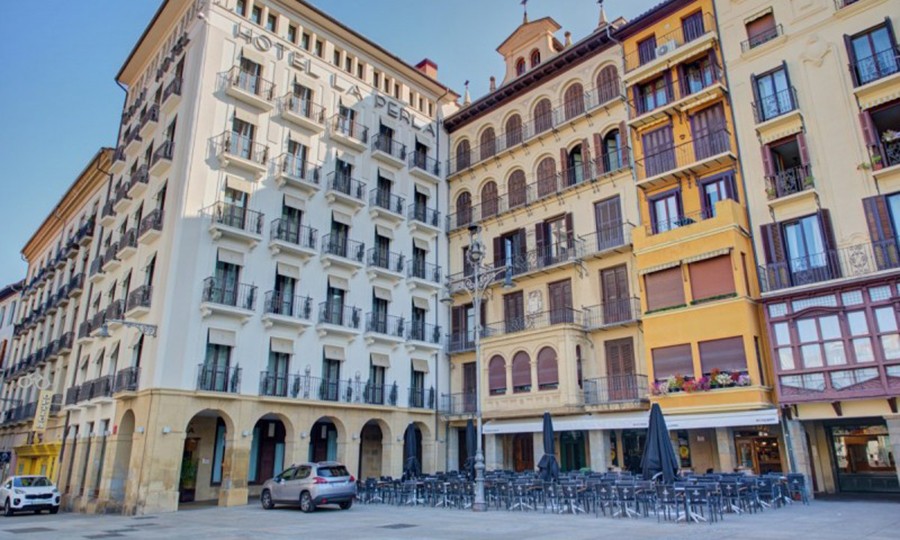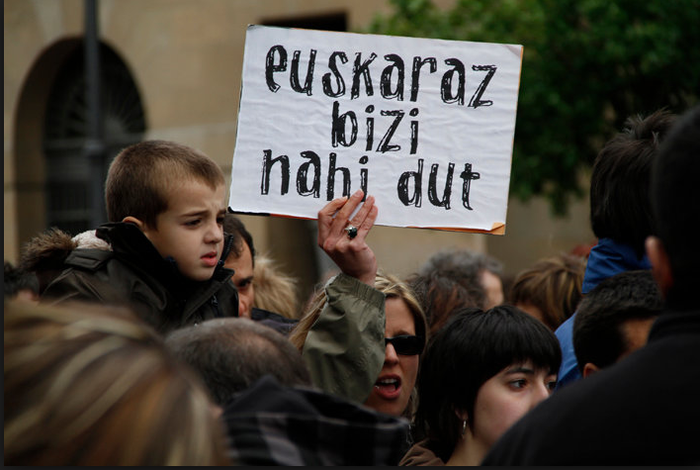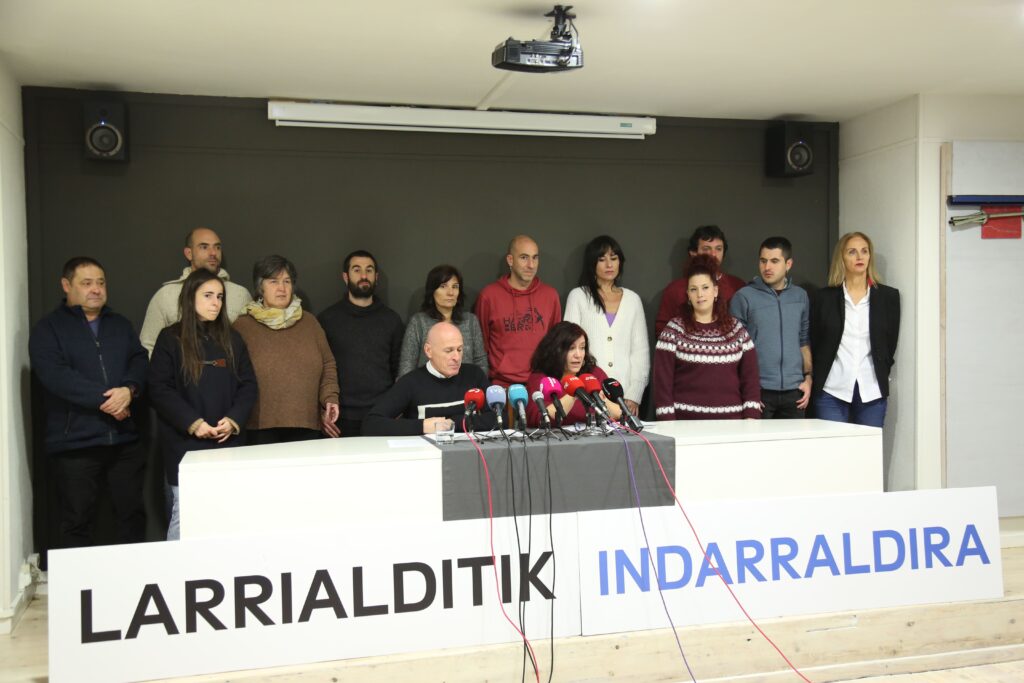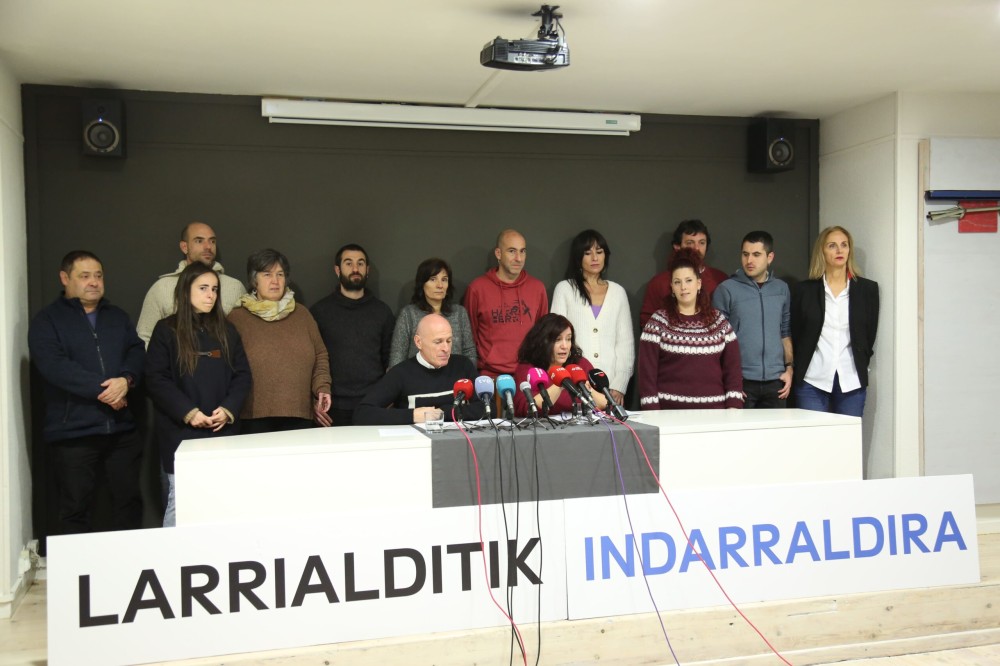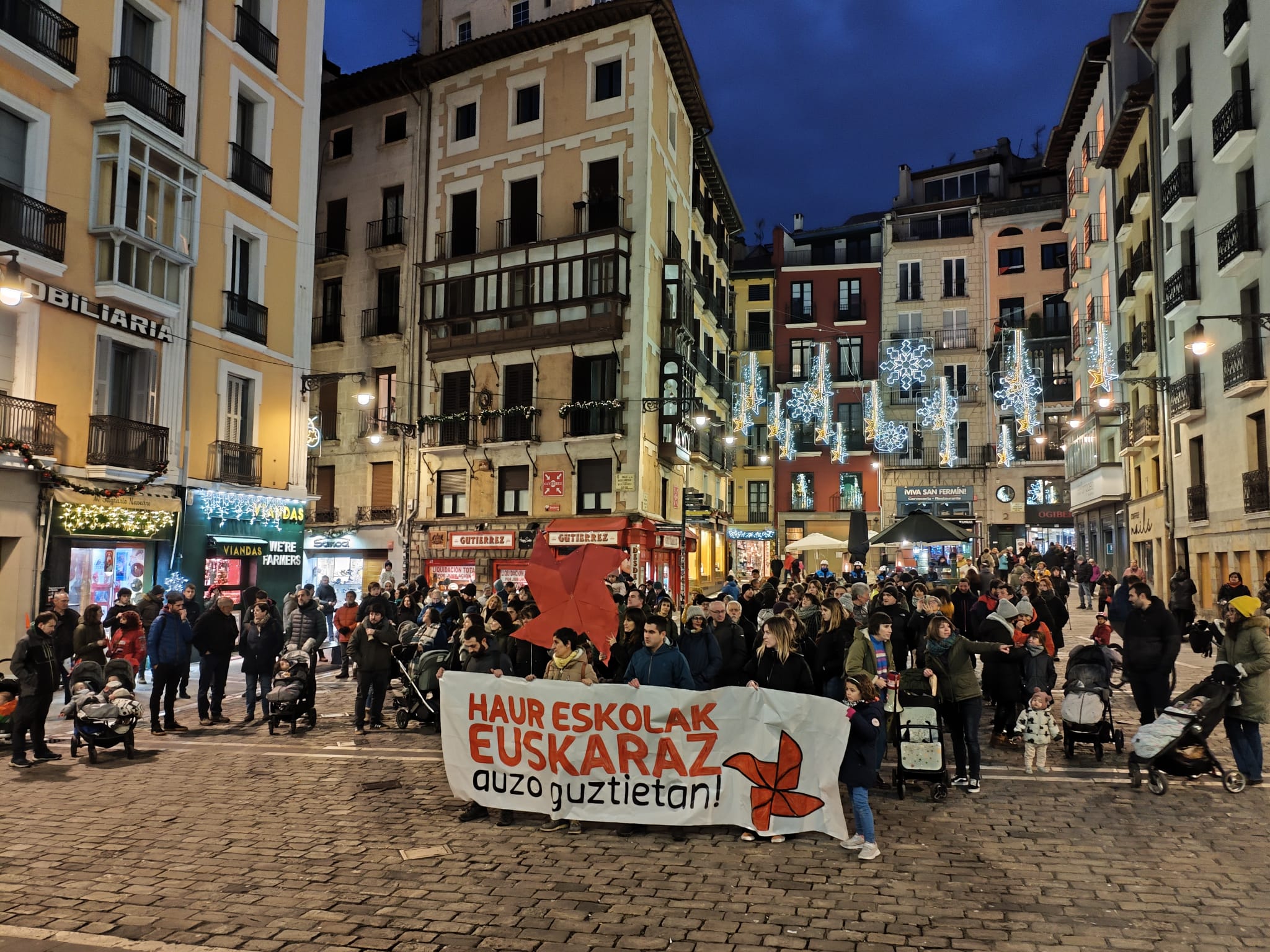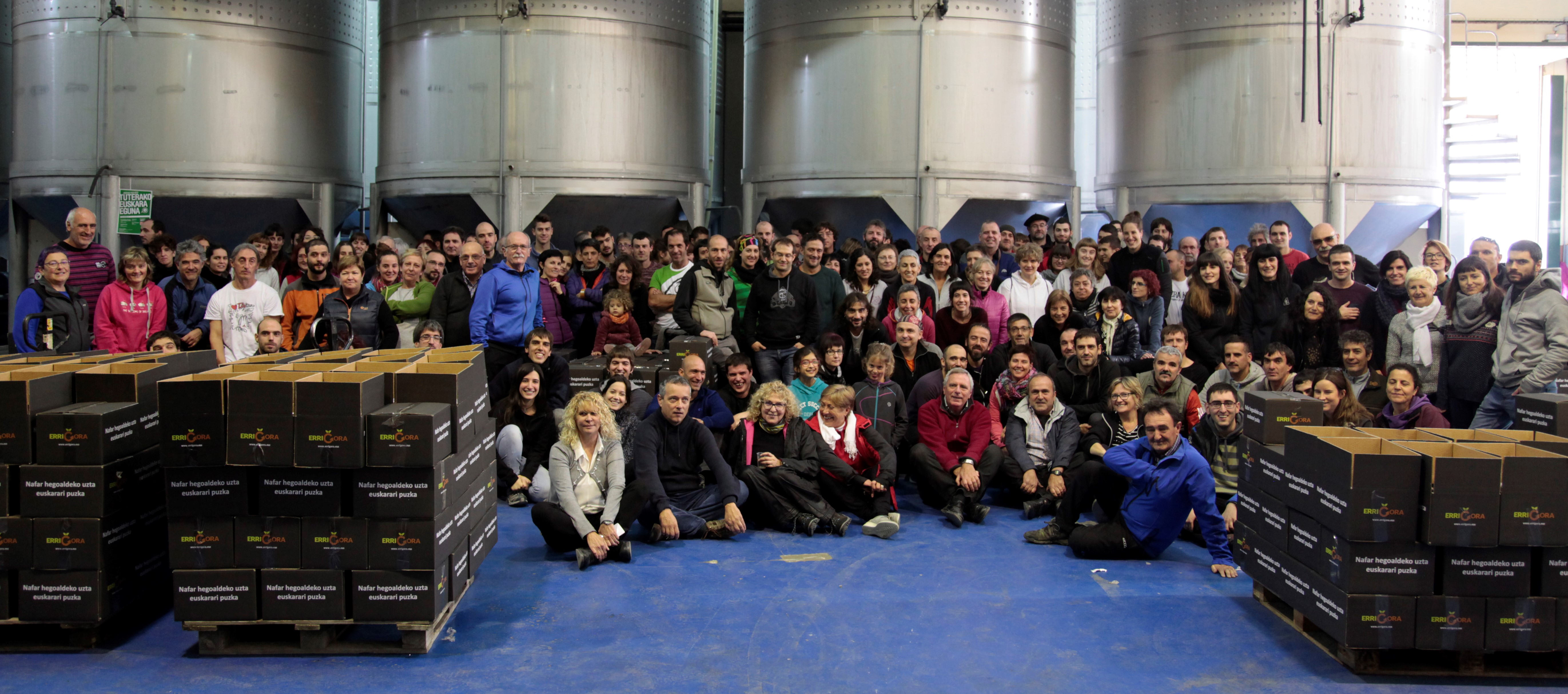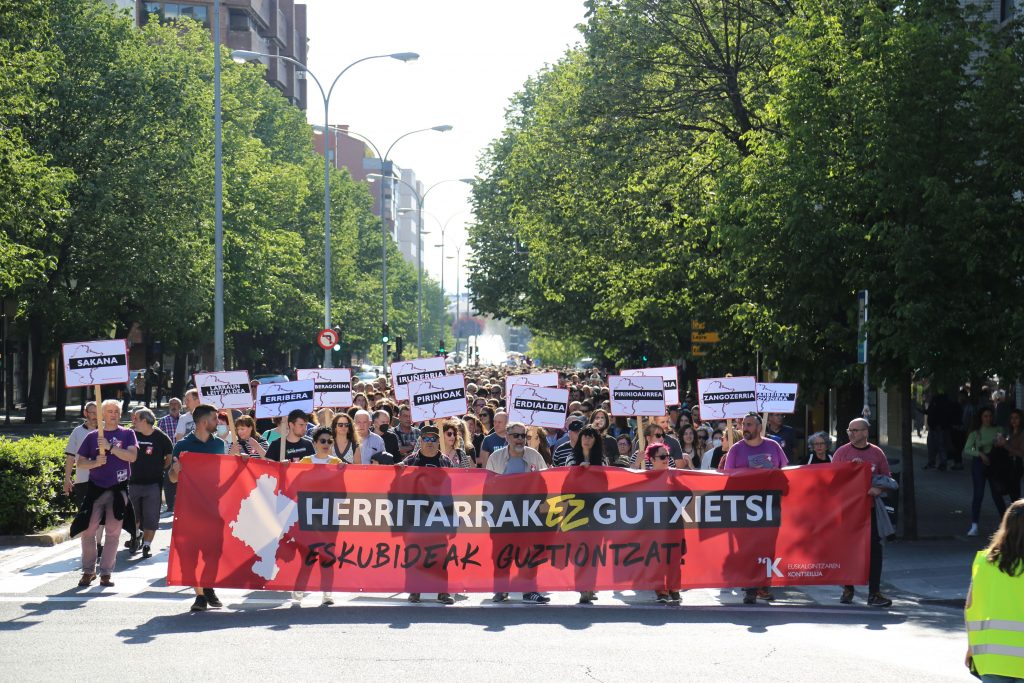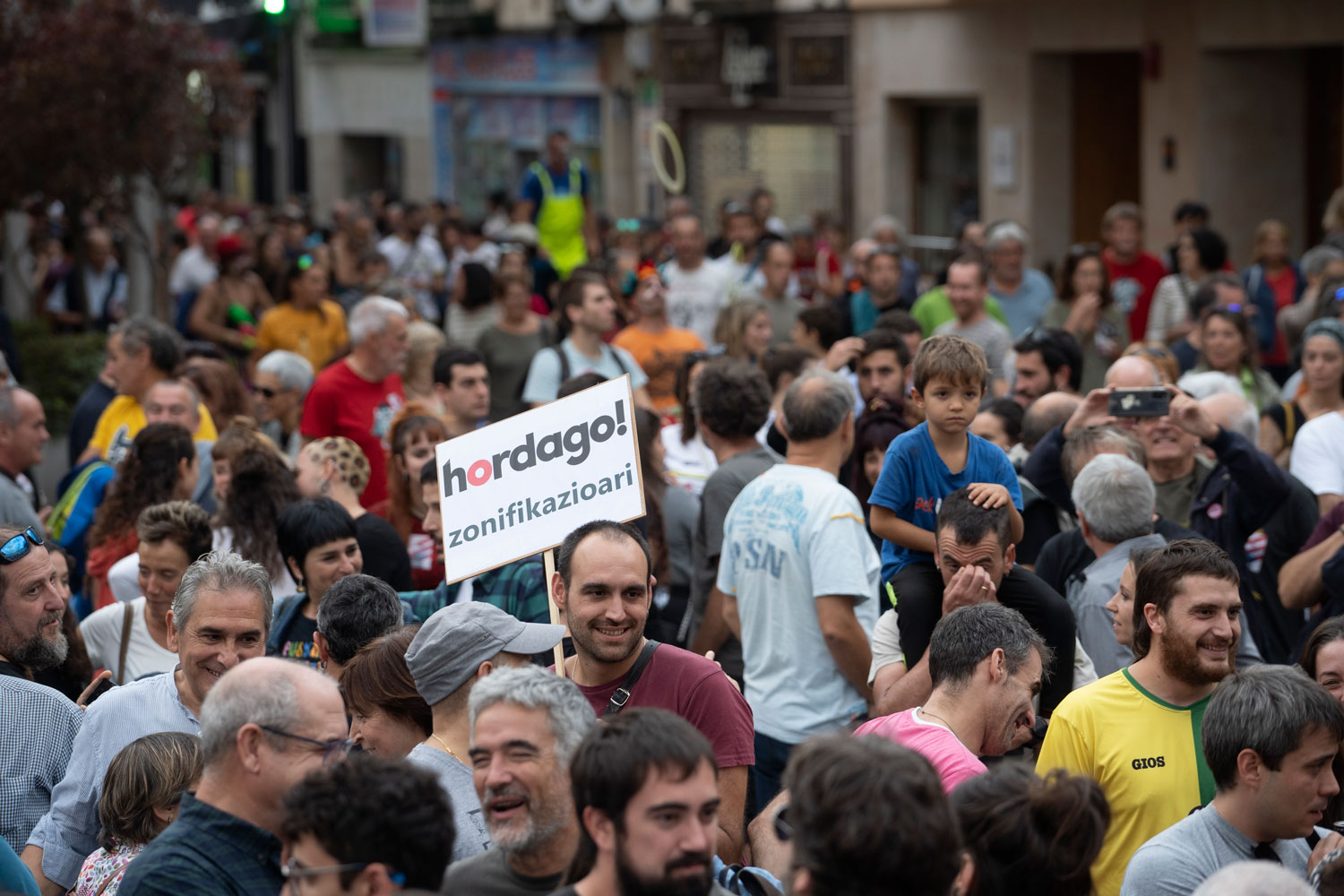Do you live in Basque in your daily life?
Josetxo. Every day at home we speak in Basque. But on the street they touch the moments that need to be done the way.
Joxe. Although the house and the environment are Euskaldunes in specific places, it can be a store or a bar… it is not possible or it is very difficult to continue speaking in Euskera.
Susanna. I try to leave the house and live in Euskera. In some places it is difficult. It depends on what you're in or the kind of conversation. If the contact is short you try to do it in Basque. Here, according to why, we all understand it. Do you answer? Maybe in Spanish. In my case, in Catalonia, it is normal for you to speak in Catalan and receive a reply in Spanish. And you are still in Catalan. He will not answer you in Catalan, but the other person understands you.
Irati. Among young people, we are all talking about Basque in Etxarri. I live in Vitoria and it costs me, but in Etxarri, always in Basque. There are shops or bars where you don't know, but if you don't, yes.
Has there been a change in the years?
Jo! Yes. For example, when we were between 10 and 15 years old, we did a lot in Spanish. Girls even more. Soon, yes. It was true. I believe that at that time the Basque country was in great danger. When I was 8-10 years old, I started Spanish on the street. My father would scream at me "the pescuezo," and he would hit my helmet. He also told me: “Think you don’t know Euskias.”
J. When we were young, we had a greater tendency to Spanish than today's young people. In this sense, today’s young people speak much more than in our time.
So the situation and use of the Basque country has improved, right?
Jo! Yes. When ikastola began, in the first ten years, we saw that the young people, despite going to the ikastola, were still in Spanish. But within a decade, that turned him around. There are a lot of fifths of me that do little, from 40-45 to 50-55 years.
Why do you do it in Basque?
Jo! Because at home they resisted us. And now because it's a great cultural heritage. No doubt.
J. In my case, conscience or political ideology also has a lot to do with it. You're growing up and you're giving a new dimension to language. It is not just the language of the house, culture… In my case it has another added value, for example, I relate it to the Basque Country.
S. I speak in Basque because I live in Basque Country. And language is wonderful. That's why I started studying. For me, speaking in Basque is normal. I can't imagine living here and not knowing Basque.
I. In the end, everyone who speaks Basque is a militant, in one way or another. Behind there is also identity.
Do you realize that this gesture of speaking Basque can be very important?
Jo! I think we are aware of this. Then there are great moments in life. You go to Pamplona to a doctor and there, like, we don't do what we do in the village. That's what doctors mostly do. Or going to lawyers, or something like that.
S. He always tries to have the first word in Basque, no. And it's the second.
J. Small gestures have their importance. But sometimes it's also pretty tired. At Etxarri no, but you get answers out of here, or not… Sometimes I find it hard to keep that attitude out of here.
Do today's young people have less referrals in Basque than they did before?
J. Since I was young, Basque culture has been greatly strengthened. But it is true that Spanish culture has multiplied by 100. We have more media in Basque than 30 years ago, but in the case of the Spanish and French they have multiplied by a thousand. The difference has increased and, proportionally, we have fewer Euskaldunes references at all levels.
S. There are many referents from all places. Ephemeral variables.
I. Instead of strengthening the Basque culture, the models of other cultures must be brought into the Basque culture. I do not know whether they are good for Basque culture or not. We as kids saw television, ETB 1, all the cartoons in Euskera. And now everyone looks in Spanish, and that affects the youngest than I do.
In today’s children we bear the responsibility of not using Euskera. Shouldn't we attract parents?
Jo! Young people, normally, do what they see done to their parents. And if we turn on Spanish television, then… they will take it as normal to see it. In my opinion, that is the point. If we don’t teach them what we think, but if we do it… That’s not easy.
J. For many years, all hope has been placed in education. We believed that if children were Euskaldunized, that would mean Euskaldunifying society spontaneously. We are seeing that this is not the case. The education system is a very important part, but it's only a part of society. The inertia of Castilian is very large. I work in Salvatierra, and I don't think it's the only place, but in Salvatierra the children who have Basque parents enter at the age of 2-3 in model D and at the age of 5 they already know Spanish. It's very significant. Why does that happen to children? Because as a young man, you say: “Young people choose one language or another.” But in children it's not, it's a natural process. It is worrying.
S. So many screens not? We were very lucky with the kids with Pirritx and Porrotx. I put videos and, finally, interesting. Very enriching. But you put ETB3 and the kids compare it to other cartoons, and the other channels are more attractive to them. He turned on television and lost Euskera's use. They either put the video or they changed the TV channel.
Do you attach importance to the dialect?
Jo! I do. I see it's important that he's alive. And at the same time the Basque Country batua. If not, how to read it… You have to go both. The one does not go against the other. They enrich each other.
I. Young people don't do the same dialect as older people, but we work in the dialect.
Jo! That there is change. No doubt. We were illiterate in Basque. We didn't know more about the people. It’s normal that we… It’s Joxe’s mother who is most beautiful in the dialect of Etxarri.
Older people leave and go with their dialect. Are we going younger?
J. For many years I have had a tendency towards the unification of the Basque country. I don't know why. Now I'm trying to change. In my workplace, with my peers, I try with more and more people to speak in Basque in Etxarri. I do it with some. With others, concrete situations, simple conversations. When we enter the debate, I have not yet succeeded. It's important to recognize the value of ours.
S. I learned the batua. I came to Etxarri and said, “I don’t know what I’ve learned, but they don’t talk here…” But then you learn a little, deducing, using… It’s hard, but well, I try.
J. A doubt. The same is happening on the other side. I am reading more and more posters and things in the dialect. I don't know if that's good, too. Written language is a code, oral language is another, and then I have doubts.
Jo! The poster, if it has to be distributed in the village or in the region, or in the Basque Country… You will do it in the village, right?
J. It's curious. You receive a whatsapp with a sign from Spain and it says: “Let’s go.” And we say: “Hit, what illiterate they are! They don’t even know how to write.” And then you read here ...
Jo! If we are used to reading it once and for all, then that people's poster is hardly enough for us to reflect. And it's our language, but we're not used to reading it out of the box.
What does Etxarri need now?
Jo! In small towns, because of the shortage of people, it is difficult to have literacy tools, classrooms, teachers. And for example, let's not go to Ergoiena. It's a problem. Whether it is a people or a minor, it must be given other instruments, those with a capital. In the capitals they have more opportunities than in the villages to learn the Basque language and culture.
S. The Basques have to speak in Basque. If a new Basque sees that the Basque goes to Castilian, he becomes decosified and finds it easier to go to Castilian. The problem is that Euskaldunes do not speak in Basque.
J. At Etxarri, the most important thing is for us to talk about what we know. Etxarri is a small village, a small ecosystem. If we want to normalize Euskera, the challenge remains to disseminate knowledge in Navarre and in the Basque Country. Especially in Navarra. When we leave here, it doesn't matter to go to the administration, to Osasunbidea or to work. Those who do not know Euskera also do not let us speak in Euskera. Sometimes it is enough for one or two people to be in a large group so that all the groups are in Spanish. We have not yet won the battle of knowledge. Of course, the situation in Etxarri is special. Also of some of the peoples of Sakana. But ...
What are the weaknesses of Etxarri?
J. I don't know what the exact situation in the health center is. I know that at the reception there are the Basques. The last times I have gone I have touched a Basque doctor. Different, but by my side they have been the Basques. But I think there's a big gap in pediatrics. I don't even know what the actual situation of the music school is.
Jo! You are obliged to speak Spanish with people here who do not know Euskera.
S. With specific people who don't know... Yeah, pediatrician.
And the strengths?
S. The Ikastola, the city hall.
J. Ikastola has always been. But in school it has long been possible to eliminate model A. That is very positive.
I. Gaztetxe.
J. In general, there is good disposition. For many years, there have been a lot of people who have done a very useful different job. It has produced results. A favourable climate has been achieved. Awareness also: “We have to speak in Basque.”
How do you imagine the future Etxarri Aranatz?
Jo! From what I've seen as a young man, I see him very well. It will be more Euskaldun.
S. Yes.
I. I hope so.
J. That's what I want, but there are concerns. People are traveling more and more, young people are going out to study… I don’t know if they’re going to maintain their attachment to language. The other languages are very strong. According to the decisions we take today, the future will be one way or another. All we have to do is be optimistic.










